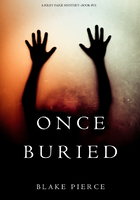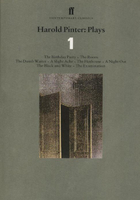THE Epanchin family, or at least the more serious members of it, were sometimes grieved because they seemed so unlike the rest of the world. They were not quite certain, but had at times a strong suspicion that things did not happen to them as they did to other people. Others led a quiet, uneventful life, while they were subject to continual upheavals. Others kept on the rails without difficulty; they ran off at the slightest obstacle. Other houses were governed by a timid routine; theirs was somehow different. Perhaps Lizabetha Prokofievna was alone in making these fretful observations; the girls, though not wanting in intelligence, were still young; the general was intelligent, too, but narrow, and in any difficulty he was content to say, "H'm!" and leave the matter to his wife. Consequently, on her fell the responsibility. It was not that they distinguished themselves as a family by any particular originality, or that their excursions off the track led to any breach of the proprieties. Oh no.
There was nothing premeditated, there was not even any conscious purpose in it all, and yet, in spite of everything, the family, although highly respected, was not quite what every highly respected family ought to be. For a long time now Lizabetha Prokofievna had had it in her mind that all the trouble was owing to her "unfortunate character," and this added to her distress. She blamed her own stupid unconventional "eccentricity." Always restless, always on the go, she constantly seemed to lose her way, and to get into trouble over the simplest and more ordinary affairs of life.
We said at the beginning of our story, that the Epanchins were liked and esteemed by their neighbours. In spite of his humble origin, Ivan Fedorovitch himself was received everywhere with respect. He deserved this, partly on account of his wealth and position, partly because, though limited, he was really a very good fellow. But a certain limitation of mind seems to be an indispensable asset, if not to all public personages, at least to all serious financiers. Added to this, his manner was modest and unassuming; he knew when to be silent, yet never allowed himself to be trampled upon. Also—and this was more important than all—he had the advantage of being under exalted patronage.
As to Lizabetha Prokofievna, she, as the reader knows, belonged to an aristocratic family. True, Russians think more of influential friends than of birth, but she had both. She was esteemed and even loved by people of consequence in society, whose example in receiving her was therefore followed by others. It seems hardly necessary to remark that her family worries and anxieties had little or no foundation, or that her imagination increased them to an absurd degree; but if you have a wart on your forehead or nose, you imagine that all the world is looking at it, and that people would make fun of you because of it, even if you had discovered America! Doubtless Lizabetha Prokofievna was considered "eccentric" in society, but she was none the less esteemed: the pity was that she was ceasing to believe in that esteem. When she thought of her daughters, she said to herself sorrowfully that she was a hindrance rather than a help to their future, that her character and temper were absurd, ridiculous, insupportable. Naturally, she put the blame on her surroundings, and from morning to night was quarrelling with her husband and children, whom she really loved to the point of self-sacrifice, even, one might say, of passion.
She was, above all distressed by the idea that her daughters might grow up "eccentric," like herself; she believed that no other society girls were like them. "They are growing into Nihilists!" she repeated over and over again. For years she had tormented herself with this idea, and with the question: "Why don't they get married?"
"It is to annoy their mother; that is their one aim in life; it can be nothing else. The fact is it is all of a piece with these modern ideas, that wretched woman's question! Six months ago Aglaya took a fancy to cut off her magnificent hair. Why, even I, when I was young, had nothing like it! The scissors were in her hand, and I had to go down on my knees and implore her… She did it, I know, from sheer mischief, to spite her mother, for she is a naughty, capricious girl, a real spoiled child spiteful and mischievous to a degree! And then Alexandra wanted to shave her head, not from caprice or mischief, but, like a little fool, simply because Aglaya persuaded her she would sleep better without her hair, and not suffer from headache! And how many suitors have they not had during the last five years! Excellent offers, too! What more do they want? Why don't they get married? For no other reason than to vex their mother—none—none!"
But Lizabetha Prokofievna felt somewhat consoled when she could say that one of her girls, Adelaida, was settled at last. "It will be one off our hands!" she declared aloud, though in private she expressed herself with greater tenderness. The engagement was both happy and suitable, and was therefore approved in society. Prince S. was a distinguished man, he had money, and his future wife was devoted to him; what more could be desired? Lizabetha Prokofievna had felt less anxious about this daughter, however, although she considered her artistic tastes suspicious. But to make up for them she was, as her mother expressed it, "merry," and had plenty of "common-sense." It was Aglaya's future which disturbed her most. With regard to her eldest daughter, Alexandra, the mother never quite knew whether there was cause for anxiety or not. Sometimes she felt as if there was nothing to be expected from her. She was twenty-five now, and must be fated to be an old maid, and "with such beauty, too!" The mother spent whole nights in weeping and lamenting, while all the time the cause of her grief slumbered peacefully. "What is the matter with her? Is she a Nihilist, or simply a fool?"
But Lizabetha Prokofievna knew perfectly well how unnecessary was the last question. She set a high value on Alexandra Ivanovna's judgment, and often consulted her in difficulties; but that she was a 'wet hen' she never for a moment doubted. "She is so calm; nothing rouses her—though wet hens are not always calm! Oh! I can't understand it!" Her eldest daughter inspired Lizabetha with a kind of puzzled compassion. She did not feel this in Aglaya's case, though the latter was her idol. It may be said that these outbursts and epithets, such as "wet hen" (in which the maternal solicitude usually showed itself), only made Alexandra laugh. Sometimes the most trivial thing annoyed Mrs. Epanchin, and drove her into a frenzy. For instance, Alexandra Ivanovna liked to sleep late, and was always dreaming, though her dreams had the peculiarity of being as innocent and naive as those of a child of seven; and the very innocence of her dreams annoyed her mother. Once she dreamt of nine hens, and this was the cause of quite a serious quarrel—no one knew why. Another time she had—it was most unusual—a dream with a spark of originality in it. She dreamt of a monk in a dark room, into which she was too frightened to go. Adelaida and Aglaya rushed off with shrieks of laughter to relate this to their mother, but she was quite angry, and said her daughters were all fools.
"H'm! she is as stupid as a fool! A veritable 'wet hen'! Nothing excites her; and yet she is not happy; some days it makes one miserable only to look at her! Why is she unhappy, I wonder?" At times Lizabetha Prokofievna put this question to her husband, and as usual she spoke in the threatening tone of one who demands an immediate answer. Ivan Fedorovitch would frown, shrug his shoulders, and at last give his opinion: "She needs a husband!"
"God forbid that he should share your ideas, Ivan Fedorovitch!" his wife flashed back. "Or that he should be as gross and churlish as you!"
The general promptly made his escape, and Lizabetha Prokofievna after a while grew calm again. That evening, of course, she would be unusually attentive, gentle, and respectful to her "gross and churlish" husband, her "dear, kind Ivan Fedorovitch," for she had never left off loving him. She was even still "in love" with him. He knew it well, and for his part held her in the greatest esteem.
But the mother's great and continual anxiety was Aglaya. "She is exactly like me—my image in everything," said Mrs. Epanchin to herself. "A tyrant! A real little demon! A Nihilist! Eccentric, senseless and mischievous! Good Lord, how unhappy she will be!"
But as we said before, the fact of Adelaida's approaching marriage was balm to the mother. For a whole month she forgot her fears and worries.
Adelaida's fate was settled; and with her name that of Aglaya's was linked, in society gossip. People whispered that Aglaya, too, was "as good as engaged;" and Aglaya always looked so sweet and behaved so well (during this period), that the mother's heart was full of joy. Of course, Evgenie Pavlovitch must be thoroughly studied first, before the final step should be taken; but, really, how lovely dear Aglaya had become—she actually grew more beautiful every day! And then—Yes, and then—this abominable prince showed his face again, and everything went topsy-turvy at once, and everyone seemed as mad as March hares.
What had really happened?
If it had been any other family than the Epanchins', nothing particular would have happened. But, thanks to Mrs. Epanchin's invariable fussiness and anxiety, there could not be the slightest hitch in the simplest matters of everyday life, but she immediately foresaw the most dreadful and alarming consequences, and suffered accordingly.
What then must have been her condition, when, among all the imaginary anxieties and calamities which so constantly beset her, she now saw looming ahead a serious cause for annoyance—something really likely to arouse doubts and suspicions!
"How dared they, how DARED they write that hateful anonymous letter informing me that Aglaya is in communication with Nastasia Philipovna?" she thought, as she dragged the prince along towards her own house, and again when she sat him down at the round table where the family was already assembled. "How dared they so much as THINK of such a thing? I should DIE with shame if I thought there was a particle of truth in it, or if I were to show the letter to Aglaya herself! Who dares play these jokes upon US, the Epanchins? WHY didn't we go to the Yelagin instead of coming down here? I TOLD you we had better go to the Yelagin this summer, Ivan Fedorovitch. It's all your fault. I dare say it was that Varia who sent the letter. It's all Ivan Fedorovitch. THAT woman is doing it all for him, I know she is, to show she can make a fool of him now just as she did when he used to give her pearls.
"But after all is said, we are mixed up in it. Your daughters are mixed up in it, Ivan Fedorovitch; young ladies in society, young ladies at an age to be married; they were present, they heard everything there was to hear. They were mixed up with that other scene, too, with those dreadful youths. You must be pleased to remember they heard it all. I cannot forgive that wretched prince. I never shall forgive him! And why, if you please, has Aglaya had an attack of nerves for these last three days? Why has she all but quarrelled with her sisters, even with Alexandra—whom she respects so much that she always kisses her hands as though she were her mother? What are all these riddles of hers that we have to guess? What has Gavrila Ardalionovitch to do with it? Why did she take upon herself to champion him this morning, and burst into tears over it? Why is there an allusion to that cursed 'poor knight' in the anonymous letter? And why did I rush off to him just now like a lunatic, and drag him back here? I do believe I've gone mad at last. What on earth have I done now? To talk to a young man about my daughter's secrets—and secrets having to do with himself, too! Thank goodness, he's an idiot, and a friend of the house! Surely Aglaya hasn't fallen in love with such a gaby! What an idea! Pfu! we ought all to be put under glass cases—myself first of all—and be shown off as curiosities, at ten copecks a peep!"
"I shall never forgive you for all this, Ivan Fedorovitch—never! Look at her now. Why doesn't she make fun of him? She said she would, and she doesn't. Look there! She stares at him with all her eyes, and doesn't move; and yet she told him not to come. He looks pale enough; and that abominable chatterbox, Evgenie Pavlovitch, monopolizes the whole of the conversation. Nobody else can get a word in. I could soon find out all about everything if I could only change the subject."
The prince certainly was very pale. He sat at the table and seemed to be feeling, by turns, sensations of alarm and rapture.
Oh, how frightened he was of looking to one side—one particular corner—whence he knew very well that a pair of dark eyes were watching him intently, and how happy he was to think that he was once more among them, and occasionally hearing that well-known voice, although she had written and forbidden him to come again!
"What on earth will she say to me, I wonder?" he thought to himself.
He had not said a word yet; he sat silent and listened to Evgenie Pavlovitch's eloquence. The latter had never appeared so happy and excited as on this evening. The prince listened to him, but for a long time did not take in a word he said.
Excepting Ivan Fedorovitch, who had not as yet returned from town, the whole family was present. Prince S. was there; and they all intended to go out to hear the band very soon.
Colia arrived presently and joined the circle. "So he is received as usual, after all," thought the prince.
The Epanchins' country-house was a charming building, built after the model of a Swiss chalet, and covered with creepers. It was surrounded on all sides by a flower garden, and the family sat, as a rule, on the open verandah as at the prince's house.
The subject under discussion did not appear to be very popular with the assembly, and some would have been delighted to change it; but Evgenie would not stop holding forth, and the prince's arrival seemed to spur him on to still further oratorical efforts.
Lizabetha Prokofievna frowned, but had not as yet grasped the subject, which seemed to have arisen out of a heated argument. Aglaya sat apart, almost in the corner, listening in stubborn silence.
"Excuse me," continued Evgenie Pavlovitch hotly, "I don't say a word against liberalism. Liberalism is not a sin, it is a necessary part of a great whole, which whole would collapse and fall to pieces without it. Liberalism has just as much right to exist as has the most moral conservatism; but I am attacking RUSSIAN liberalism; and I attack it for the simple reason that a Russian liberal is not a Russian liberal, he is a non-Russian liberal. Show me a real Russian liberal, and I'll kiss him before you all, with pleasure."
"If he cared to kiss you, that is," said Alexandra, whose cheeks were red with irritation and excitement.
"Look at that, now," thought the mother to herself, "she does nothing but sleep and eat for a year at a time, and then suddenly flies out in the most incomprehensible way!"
The prince observed that Alexandra appeared to be angry with Evgenie, because he spoke on a serious subject in a frivolous manner, pretending to be in earnest, but with an under-current of irony.
"I was saying just now, before you came in, prince, that there has been nothing national up to now, about our liberalism, and nothing the liberals do, or have done, is in the least degree national. They are drawn from two classes only, the old landowning class, and clerical families—"
"How, nothing that they have done is Russian?" asked Prince S.
"It may be Russian, but it is not national. Our liberals are not Russian, nor are our conservatives, and you may be sure that the nation does not recognize anything that has been done by the landed gentry, or by the seminarists, or what is to be done either."
"Come, that's good! How can you maintain such a paradox? If you are serious, that is. I cannot allow such a statement about the landed proprietors to pass unchallenged. Why, you are a landed proprietor yourself!" cried Prince S. hotly.
"I suppose you'll say there is nothing national about our literature either?" said Alexandra.
"Well, I am not a great authority on literary questions, but I certainly do hold that Russian literature is not Russian, except perhaps Lomonosoff, Pouschkin and Gogol."
"In the first place, that is a considerable admission, and in the second place, one of the above was a peasant, and the other two were both landed proprietors!"
"Quite so, but don't be in such a hurry! For since it has been the part of these three men, and only these three, to say something absolutely their own, not borrowed, so by this very fact these three men become really national. If any Russian shall have done or said anything really and absolutely original, he is to be called national from that moment, though he may not be able to talk the Russian language; still he is a national Russian. I consider that an axiom. But we were not speaking of literature; we began by discussing the socialists. Very well then, I insist that there does not exist one single Russian socialist. There does not, and there has never existed such a one, because all socialists are derived from the two classes—the landed proprietors, and the seminarists. All our eminent socialists are merely old liberals of the class of landed proprietors, men who were liberals in the days of serfdom. Why do you laugh? Give me their books, give me their studies, their memoirs, and though I am not a literary critic, yet I will prove as clear as day that every chapter and every word of their writings has been the work of a former landed proprietor of the old school. You'll find that all their raptures, all their generous transports are proprietary, all their woes and their tears, proprietary; all proprietary or seminarist! You are laughing again, and you, prince, are smiling too. Don't you agree with me?"
It was true enough that everybody was laughing, the prince among them.
"I cannot tell you on the instant whether I agree with you or not," said the latter, suddenly stopping his laughter, and starting like a schoolboy caught at mischief. "But, I assure you, I am listening to you with extreme gratification."
So saying, he almost panted with agitation, and a cold sweat stood upon his forehead. These were his first words since he had entered the house; he tried to lift his eyes, and look around, but dared not; Evgenie Pavlovitch noticed his confusion, and smiled.
"I'll just tell you one fact, ladies and gentlemen," continued the latter, with apparent seriousness and even exaltation of manner, but with a suggestion of "chaff" behind every word, as though he were laughing in his sleeve at his own nonsense—"a fact, the discovery of which, I believe, I may claim to have made by myself alone. At all events, no other has ever said or written a word about it; and in this fact is expressed the whole essence of Russian liberalism of the sort which I am now considering.
"In the first place, what is liberalism, speaking generally, but an attack (whether mistaken or reasonable, is quite another question) upon the existing order of things? Is this so? Yes. Very well. Then my 'fact' consists in this, that RUSSIAN liberalism is not an attack upon the existing order of things, but an attack upon the very essence of things themselves—indeed, on the things themselves; not an attack on the Russian order of things, but on Russia itself. My Russian liberal goes so far as to reject Russia; that is, he hates and strikes his own mother. Every misfortune and mishap of the mother-country fills him with mirth, and even with ecstasy. He hates the national customs, Russian history, and everything. If he has a justification, it is that he does not know what he is doing, and believes that his hatred of Russia is the grandest and most profitable kind of liberalism. (You will often find a liberal who is applauded and esteemed by his fellows, but who is in reality the dreariest, blindest, dullest of conservatives, and is not aware of the fact.) This hatred for Russia has been mistaken by some of our 'Russian liberals' for sincere love of their country, and they boast that they see better than their neighbours what real love of one's country should consist in. But of late they have grown, more candid and are ashamed of the expression 'love of country,' and have annihilated the very spirit of the words as something injurious and petty and undignified. This is the truth, and I hold by it; but at the same time it is a phenomenon which has not been repeated at any other time or place; and therefore, though I hold to it as a fact, yet I recognize that it is an accidental phenomenon, and may likely enough pass away. There can be no such thing anywhere else as a liberal who really hates his country; and how is this fact to be explained among US? By my original statement that a Russian liberal is NOT a RUSSIAN liberal—that's the only explanation that I can see."
"I take all that you have said as a joke," said Prince S. seriously.
"I have not seen all kinds of liberals, and cannot, therefore, set myself up as a judge," said Alexandra, "but I have heard all you have said with indignation. You have taken some accidental case and twisted it into a universal law, which is unjust."
"Accidental case!" said Evgenie Pavlovitch. "Do you consider it an accidental case, prince?"
"I must also admit," said the prince, "that I have not seen much, or been very far into the question; but I cannot help thinking that you are more or less right, and that Russian liberalism—that phase of it which you are considering, at least—really is sometimes inclined to hate Russia itself, and not only its existing order of things in general. Of course this is only PARTIALLY the truth; you cannot lay down the law for all… "
The prince blushed and broke off, without finishing what he meant to say.
In spite of his shyness and agitation, he could not help being greatly interested in the conversation. A special characteristic of his was the naive candour with which he always listened to arguments which interested him, and with which he answered any questions put to him on the subject at issue. In the very expression of his face this naivete was unmistakably evident, this disbelief in the insincerity of others, and unsuspecting disregard of irony or humour in their words.
But though Evgenie Pavlovitch had put his questions to the prince with no other purpose but to enjoy the joke of his simple-minded seriousness, yet now, at his answer, he was surprised into some seriousness himself, and looked gravely at Muishkin as though he had not expected that sort of answer at all.
"Why, how strange!" he ejaculated. "You didn't answer me seriously, surely, did you?"
"Did not you ask me the question seriously" inquired the prince, in amazement.
Everybody laughed.
"Oh, trust HIM for that!" said Adelaida. "Evgenie Pavlovitch turns everything and everybody he can lay hold of to ridicule. You should hear the things he says sometimes, apparently in perfect seriousness."
"In my opinion the conversation has been a painful one throughout, and we ought never to have begun it," said Alexandra. "We were all going for a walk—"
"Come along then," said Evgenie; "it's a glorious evening. But, to prove that this time I was speaking absolutely seriously, and especially to prove this to the prince (for you, prince, have interested me exceedingly, and I swear to you that I am not quite such an ass as I like to appear sometimes, although I am rather an ass, I admit), and—well, ladies and gentlemen, will you allow me to put just one more question to the prince, out of pure curiosity? It shall be the last. This question came into my mind a couple of hours since (you see, prince, I do think seriously at times), and I made my own decision upon it; now I wish to hear what the prince will say to it."
"We have just used the expression 'accidental case.' This is a significant phrase; we often hear it. Well, not long since everyone was talking and reading about that terrible murder of six people on the part of a—young fellow, and of the extraordinary speech of the counsel for the defence, who observed that in the poverty-stricken condition of the criminal it must have come NATURALLY into his head to kill these six people. I do not quote his words, but that is the sense of them, or something very like it. Now, in my opinion, the barrister who put forward this extraordinary plea was probably absolutely convinced that he was stating the most liberal, the most humane, the most enlightened view of the case that could possibly be brought forward in these days. Now, was this distortion, this capacity for a perverted way of viewing things, a special or accidental case, or is such a general rule?"
Everyone laughed at this.
"A special case—accidental, of course!" cried Alexandra and Adelaida.
"Let me remind you once more, Evgenie," said Prince S., "that your joke is getting a little threadbare."
"What do you think about it, prince?" asked Evgenie, taking no notice of the last remark, and observing Muishkin's serious eyes fixed upon his face. "What do you think—was it a special or a usual case—the rule, or an exception? I confess I put the question especially for you."
"No, I don't think it was a special case," said the prince, quietly, but firmly.
"My dear fellow!" cried Prince S., with some annoyance, "don't you see that he is chaffing you? He is simply laughing at you, and wants to make game of you."
"I thought Evgenie Pavlovitch was talking seriously," said the prince, blushing and dropping his eyes.
"My dear prince," continued Prince S. "remember what you and I were saying two or three months ago. We spoke of the fact that in our newly opened Law Courts one could already lay one's finger upon so many talented and remarkable young barristers. How pleased you were with the state of things as we found it, and how glad I was to observe your delight! We both said it was a matter to be proud of; but this clumsy defence that Evgenie mentions, this strange argument CAN, of course, only be an accidental case—one in a thousand!"
The prince reflected a little, but very soon he replied, with absolute conviction in his tone, though he still spoke somewhat shyly and timidly:
"I only wished to say that this 'distortion,' as Evgenie Pavlovitch expressed it, is met with very often, and is far more the general rule than the exception, unfortunately for Russia. So much so, that if this distortion were not the general rule, perhaps these dreadful crimes would be less frequent."
"Dreadful crimes? But I can assure you that crimes just as dreadful, and probably more horrible, have occurred before our times, and at all times, and not only here in Russia, but everywhere else as well. And in my opinion it is not at all likely that such murders will cease to occur for a very long time to come. The only difference is that in former times there was less publicity, while now everyone talks and writes freely about such things—which fact gives the impression that such crimes have only now sprung into existence. That is where your mistake lies—an extremely natural mistake, I assure you, my dear fellow!" said Prince S.
"I know that there were just as many, and just as terrible, crimes before our times. Not long since I visited a convict prison and made acquaintance with some of the criminals. There were some even more dreadful criminals than this one we have been speaking of—men who have murdered a dozen of their fellow-creatures, and feel no remorse whatever. But what I especially noticed was this, that the very most hopeless and remorseless murderer—however hardened a criminal he may be—still KNOWS THAT HE IS A CRIMINAL; that is, he is conscious that he has acted wickedly, though he may feel no remorse whatever. And they were all like this. Those of whom Evgenie Pavlovitch has spoken, do not admit that they are criminals at all; they think they had a right to do what they did, and that they were even doing a good deed, perhaps. I consider there is the greatest difference between the two cases. And recollect—it was a YOUTH, at the particular age which is most helplessly susceptible to the distortion of ideas!"
Prince S. was now no longer smiling; he gazed at the prince in bewilderment.
Alexandra, who had seemed to wish to put in her word when the prince began, now sat silent, as though some sudden thought had caused her to change her mind about speaking.
Evgenie Pavlovitch gazed at him in real surprise, and this time his expression of face had no mockery in it whatever.
"What are you looking so surprised about, my friend?" asked Mrs. Epanchin, suddenly. "Did you suppose he was stupider than yourself, and was incapable of forming his own opinions, or what?"
"No! Oh no! Not at all!" said Evgenie. "But—how is it, prince, that you—(excuse the question, will you?)—if you are capable of observing and seeing things as you evidently do, how is it that you saw nothing distorted or perverted in that claim upon your property, which you acknowledged a day or two since; and which was full of arguments founded upon the most distorted views of right and wrong?"
"I'll tell you what, my friend," cried Mrs. Epanchin, of a sudden, "here are we all sitting here and imagining we are very clever, and perhaps laughing at the prince, some of us, and meanwhile he has received a letter this very day in which that same claimant renounces his claim, and begs the prince's pardon. There I we don't often get that sort of letter; and yet we are not ashamed to walk with our noses in the air before him."
"And Hippolyte has come down here to stay," said Colia, suddenly.
"What! has he arrived?" said the prince, starting up.
"Yes, I brought him down from town just after you had left the house."
"There now! It's just like him," cried Lizabetha Prokofievna, boiling over once more, and entirely oblivious of the fact that she had just taken the prince's part. "I dare swear that you went up to town yesterday on purpose to get the little wretch to do you the great honour of coming to stay at your house. You did go up to town, you know you did—you said so yourself! Now then, did you, or did you not, go down on your knees and beg him to come, confess!"
"No, he didn't, for I saw it all myself," said Colia. "On the contrary, Hippolyte kissed his hand twice and thanked him; and all the prince said was that he thought Hippolyte might feel better here in the country!"
"Don't, Colia,—what is the use of saying all that?" cried the prince, rising and taking his hat.
"Where are you going to now?" cried Mrs. Epanchin.
"Never mind about him now, prince," said Colia. "He is all right and taking a nap after the journey. He is very happy to be here; but I think perhaps it would be better if you let him alone for today,—he is very sensitive now that he is so ill—and he might be embarrassed if you show him too much attention at first. He is decidedly better today, and says he has not felt so well for the last six months, and has coughed much less, too."
The prince observed that Aglaya came out of her corner and approached the table at this point.
He did not dare look at her, but he was conscious, to the very tips of his fingers, that she was gazing at him, perhaps angrily; and that she had probably flushed up with a look of fiery indignation in her black eyes.
"It seems to me, Mr. Colia, that you were very foolish to bring your young friend down—if he is the same consumptive boy who wept so profusely, and invited us all to his own funeral," remarked Evgenie Pavlovitch. "He talked so eloquently about the blank wall outside his bedroom window, that I'm sure he will never support life here without it."
"I think so too," said Mrs. Epanchin; "he will quarrel with you, and be off," and she drew her workbox towards her with an air of dignity, quite oblivious of the fact that the family was about to start for a walk in the park.
"Yes, I remember he boasted about the blank wall in an extraordinary way," continued Evgenie, "and I feel that without that blank wall he will never be able to die eloquently; and he does so long to die eloquently!"
"Oh, you must forgive him the blank wall," said the prince, quietly. "He has come down to see a few trees now, poor fellow."
"Oh, I forgive him with all my heart; you may tell him so if you like," laughed Evgenie.
"I don't think you should take it quite like that," said the prince, quietly, and without removing his eyes from the carpet. "I think it is more a case of his forgiving you."
"Forgiving me! why so? What have I done to need his forgiveness?"
"If you don't understand, then—but of course, you do understand. He wished—he wished to bless you all round and to have your blessing—before he died—that's all."
"My dear prince," began Prince S., hurriedly, exchanging glances with some of those present, "you will not easily find heaven on earth, and yet you seem to expect to. Heaven is a difficult thing to find anywhere, prince; far more difficult than appears to that good heart of yours. Better stop this conversation, or we shall all be growing quite disturbed in our minds, and—"
"Let's go and hear the band, then," said Lizabetha Prokofievna, angrily rising from her place.
The rest of the company followed her example.















